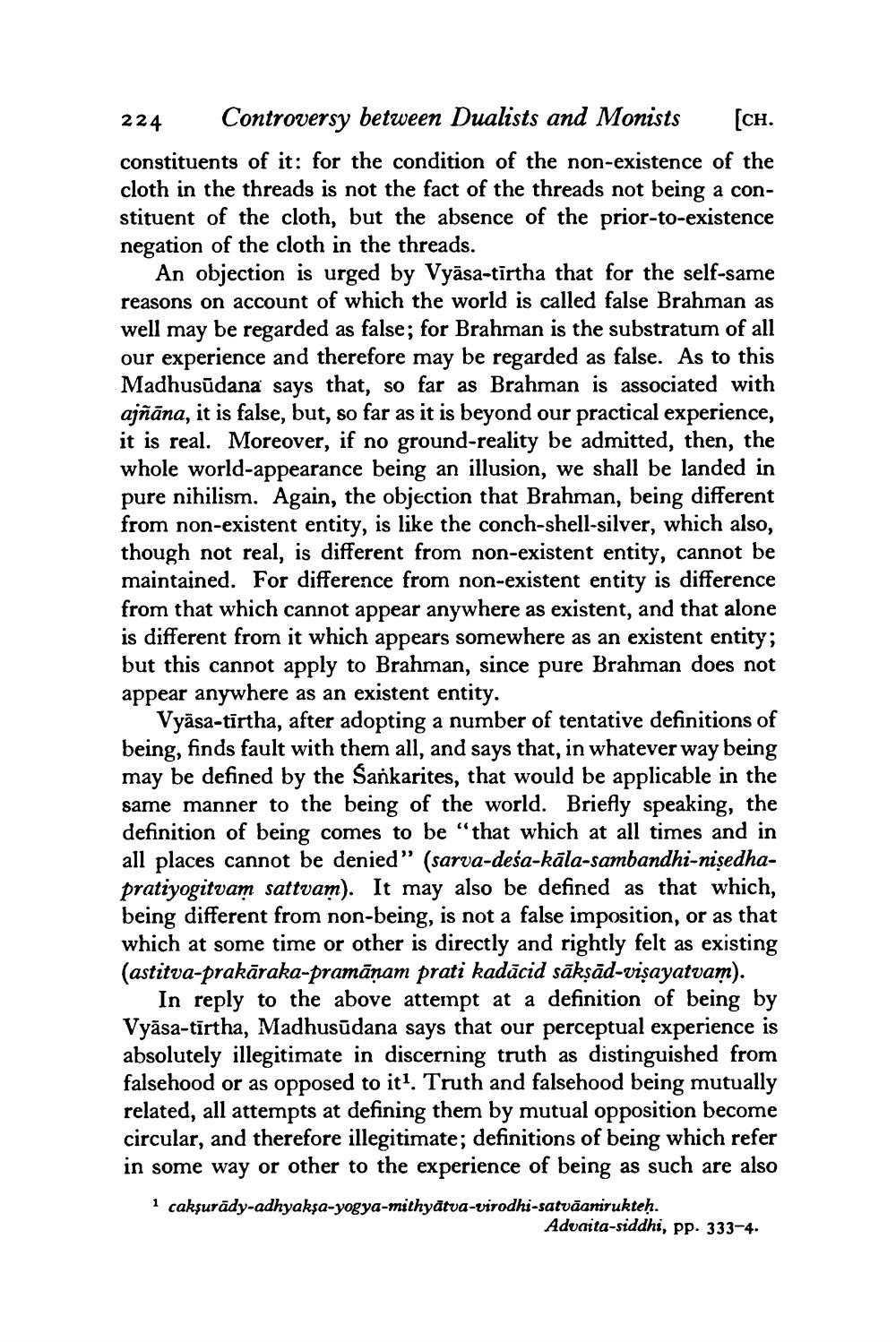________________
224 Controversy between Dualists and Monists [CH. constituents of it: for the condition of the non-existence of the cloth in the threads is not the fact of the threads not being a constituent of the cloth, but the absence of the prior-to-existence negation of the cloth in the threads.
An objection is urged by Vyāsa-tirtha that for the self-same reasons on account of which the world is called false Brahman as well may be regarded as false; for Brahman is the substratum of all our experience and therefore may be regarded as false. As to this Madhusudana says that, so far as Brahman is associated with ajñāna, it is false, but, so far as it is beyond our practical experience, it is real. Moreover, if no ground-reality be admitted, then, the whole world-appearance being an illusion, we shall be landed in pure nihilism. Again, the objection that Brahman, being different from non-existent entity, is like the conch-shell-silver, which also, though not real, is different from non-existent entity, cannot be maintained. For difference from non-existent entity is difference from that which cannot appear anywhere as existent, and that alone is different from it which appears somewhere as an existent entity; but this cannot apply to Brahman, since pure Brahman does not appear anywhere as an existent entity.
Vyäsa-tirtha, after adopting a number of tentative definitions of being, finds fault with them all, and says that, in whatever way being may be defined by the Sankarites, that would be applicable in the same manner to the being of the world. Briefly speaking, the definition of being comes to be “that which at all times and in all places cannot be denied” (sarva-deśa-kāla-sambandhi-nişedhapratiyogitvam sattvam). It may also be defined as that which, being different from non-being, is not a false imposition, or as that which at some time or other is directly and rightly felt as existing (astitva-prakāraka-pramānam prati kadācid sākṣād-vişayatvam).
In reply to the above attempt at a definition of being by Vyāsa-tīrtha, Madhusūdana says that our perceptual experience is absolutely illegitimate in discerning truth as distinguished from falsehood or as opposed to it! Truth and falsehood being mutually related, all attempts at defining them by mutual opposition become circular, and therefore illegitimate; definitions of being which refer in some way or other to the experience of being as such are also 1 cakşurădy-adhyakşa-yogya-mithyātva-virodhi-satvāanirukteh.
Advaita-siddhi, pp. 333-4.




